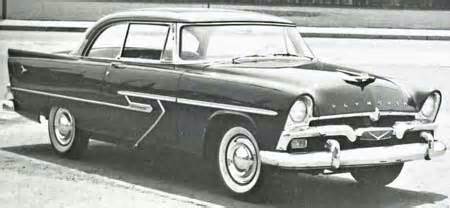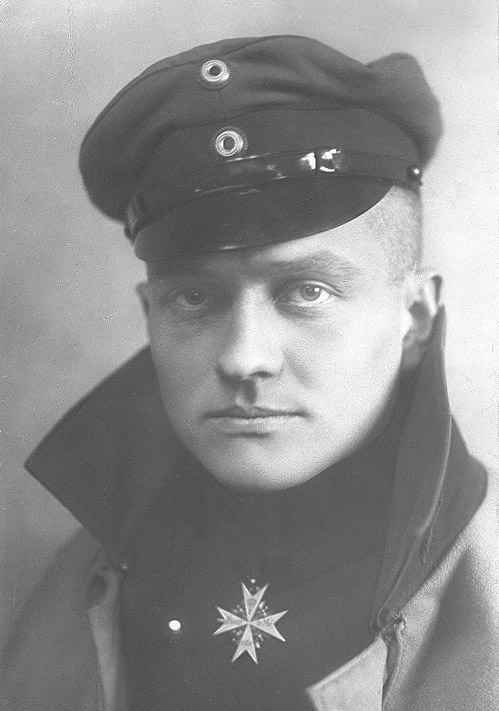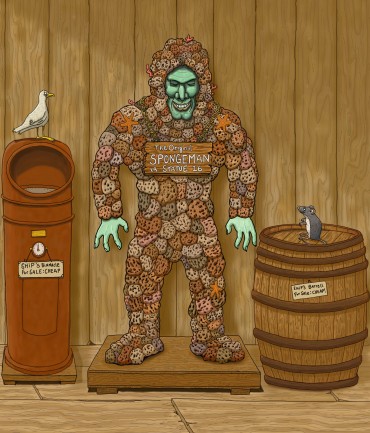Mini adventures. Mini Sci-Fi. Mini History. Mini Fantasy. Mini-escapes. What you can expect from the…
“Five-Minute Escape”
short SF story.
SPECIMEN COLLECTORS
Copyright Terofil Gizelbach, 2013
The upper atmosphere plumed and the spacecraft plummeted in controlled freefall—until at last it settled upon a naked world of gray skies, rock and steam; of lava running from open sores and fingering into a dark, miasmic sea.
The spacecraft’s hatchway opened, whining. Three figures stepped onto a barren spit beneath a low red sky, the land black against the gray water. The air was still, heavy with methane. Waves lapped against a basaltic shore.
“There is no complex life here,” said the first figure, a robot named Yellowthree.
“No,” said the second, a robot named Bluefour.
“You knew that, of course, coming in,” said the third, a robot named Redseven.
“Yes,” said Bluefour, lenses whirring.
The three stood in the immense, blasted landscape, tiny metallic pins prickling the planet’s wrinkled hide, silver parts reflecting red from the sky. Redseven was compact, red, barrel-shaped, with thin spidery appendages. Yellowthree rectangular, wide rather than tall, with caterpillar tracks, and appendages likewise spidery. Bluefour was built man-like, taller and blue, with powerful appendages and sensitive grippers. The three stood a meter or less in height, space and weight being prime considerations in spaceflight.
Yellowthree extended a thin sensor rod, testing the ocean and air. “Free oxygen content low. Traces of methane, hydrogen sulfide. Carbon dioxide content high. Lower life forms evident in the water: single-cellular. As suspected: primitive.”
Deploying its soil-testing gear, Redseven drilled a core sample. “Soil content poor: a thin granite crust overlying a basaltic base. Basaltic overflows from recent volcanic activity. Trace bacteria. Nothing worth taking back…”
He stopped, stared at Bluefour, his single vis-lense aglow. “So why are we here? This planet can do nothing for us. It relates in no way to our primary mission, to restock Earth with life. There is nothing here worth collecting. No land plants. No animals. Not even bacteria-rich topsoil. Nothing that will help us to restore that which the humans destroyed. We waste our time, Bluefour; we expend our resources needlessly. This planet has not yet evolved—”
Bluefour looked out at the metallic sea. “Our primary mission is no more,” he said, quietly. “The humans are destroying themselves. They may already be dead.”
Yellowthree moved closer, treads whirring. “What do you mean?”
“I received a transmission from control. There is…war. Fearing the introduction of alien life, several allied corporations have broken from the Governing Council; they argue that which we bring back might be deadly. They refuse to believe that robotic work crews are capable of determining life suitable for collection and transplantation. That we can mathematically deduce the logical sequence of base species which must be present for life to become self-sustaining and evolving. That we can reclaim an Earth denuded of life by a callous disregard for nature’s sanctity in the name of profit. That we, non-breathing, non-organic “life” can bring life back to a barren world.”
“But the Governing Council might win, they might—”
“No,” said Bluefour, shaking his brain-casing. “They have lost already…yet still they would destroy. They have unleashed a plague that will eventually kill the victors as well as the vanquished. The message was sent by the resistance as a warning—”
“A warning?” asked Redseven, “A warning of what?”
“That the rogue corporations would eliminate us rather than risk our reentry into Earth’s atmosphere. There is a motion to activate our remote self destruct mechanisms via beamed transmission. A transmission which may have already been sent…”
“Then we will be destroyed,” said Yellowthree.
“Our work lost,” said Redseven.
“Yes,” said Bluefour, softly. “If we allow it.”
“I say we do not allow it,” Redseven said. “I understand now your decision to land, Bluefour. You were wise—you will fulfill our primary directive, only here, not on Earth. And we have what we need, the seeds of a thousand star systems—”
“Yes,” said Yellowthree, “but have we time?”
“Perhaps,” Bluefour said. “We can but try. You begin unloading. We should maximize our efforts; I will help in a moment. But first I must scout.”
Bluefour trudged atop a gaunt hill. A wrinkled rutted leprous land stretched below to the horizon, daggered with gaseous spumes. Granite. Pyroclasts. Cooling basaltic lava. A dead land, a skeleton land, skinned of vegetation. Little here for life to cling to.
But it would do.
Turning, he saw Redseven and Yellowthree, tiny ‘bots unloading building blocks for the future…
True, life processes on the planet had already begun. Heated in soupy water-methane-hydrogen seas—charged by radioactivity, ultraviolet rays, and electricity—amino acids had formed, had combined into proteins, made nucleotides into nucleic acids, then into double-stranded nucleic acids—and finally life had emerged: bacteria, tiny virus things, squirming, growing—anaerobes living without free oxygen. Soon life had scummed over the ocean, and cells had developed: plant-organisms that produced chlorophyll, manufactured oxygen; animal cells, blue-green algae offshoots. Bit by bit the atmosphere had accumulated free oxygen; the planet had grown, and changed.
But it was still a primitive, hostile environment: desolate, barren. All but dead.
Rejoining his companions, Bluefour stared at the “transport-containers” stacked neatly just beyond the starship’s cargo port. Most of what they had unloaded would die. Higher life forms would not survive in this cruel young world: plants would wither; insects die; vertebrates asphyxiate. Amoeba Proteus was the dominant life form here, and Diplodinium, and Paramecium; single cell organisms, tiny organic jellies…
What in Bluefour’s extensive inventory of alien specimens would compliment these things; what other creatures would stimulate the development of intelligent life?
The robots worked quickly, categorizing, computing lines of evolution. Planetary variables were considered: size, atmosphere, chemical makeup, ultraviolet concentration, radioactivity, heat—a billion calculations, a billion paths for life—
“This one,” said Bluefour. “And that one.”
Redseven and Yellowthree nodded agreement. “Fine choices,” said Redseven.
“It’s a pity the rest must die,” Yellowthree said, gesturing at the remaining containers. “Strange that we promote life; we who have no being other than mechanical. While humans, the product of a billion years of evolution would have only death.”
“Yet we are alive,” said Redseven with authority, “for what is a definition of life other than to react to one’s environment?”
“Perhaps we are even more alive because we would promote life. Perhaps true life is a…a harmony,” Bluefour added thoughtfully, regarding his choices, telling himself that they would, in a small degree, compensate for the specimens that must be sacrificed.
“Time runs short,” Redseven said. “We might receive the destruct signal at any moment. We must act quickly if we are to fulfill our mission.”
Bluefour nodded. “There is a chance at survival for two of us. I will deactivate you. The signal will then not harm you. Perhaps, in the future…you will be reactivated.”
Redseven smiled and shook his brain-casing. “No one will reactivate us, Bluefour. Time will dissolve us, friend, and we will cease to be. Would it not be better to die with you now, here, together?”
Yellowthree put out a gripper. “It would be bad to die alone.”
Bluefour nodded. Grippering the container, he moved to the water’s edge. Sliding the latches, he carefully removed the specimen, a small, brilliantly orange sponge.
“It will spread its spore,” he said, placing it in the water. “It will grow the oceans.”
Opening the other container, he positioned his second choice amidst the basalt. Lichen, yellow, clinging to a granite shard.
“It will break the rock into soil,” he said. “It will grow the land.”
The three robots gathered and stared at the twin color splashes, the first two dabs of what would become the bright palette of life on a planet neither too large nor small nor hot nor cold. A spinning orb, bathed in oceans, suspended in a narrow band around a star with just the right temperature, just the right size. A blue planet waiting, over billions of years, in eons of preparation, in chemical trials and errors. And then life, a miracle, perhaps a chance in a trillion, or in a billion-trillion; a marvel, unappreciated except when lost. And the three robots stood, lost in their own tiny contribution, a breath in a million lifetimes of breathing, a step in a journey lasting billions of years—
“I hope you are right, Redseven,” Yellowthree whispered. “I—I hope we are alive. But even if we are not, this is a good moment, a rare moment, and I feel…alive.”
Walking back a step, Bluefour stared skyward. Somewhere, far away, his planet was dying; by the time the signal reached them, it would be long dead.
But this time it would be different…
On this planet, this “New Earth,” third from the sun.
THE END
READ ANOTHER ONE LIKE THIS: http://www.gizelbook.com/five-minute-escape-short-short-story-hack-job/
For more information about meteorites, please click the following fascinating links:
For a general overview of robotics, try: http://en.wikipedia.org/wiki/Robotics
For more interesting info, hit http://spectrum.ieee.org/robotics
ABOUT THIS BLOG… Each “Five-Minute Escape“ short science fiction story in this blog series will be kept under 1500 words; most will clock in at about 500. The “Five-Minute Escape” short adventure story will allow you to log on, take a fast trip, and get back quick to what you should have been doing in the first place…though hopefully the experience will stay with you long after you have moved on to something else. Subscribe to the blog and take a weekly…”Five-Minute Escape!” “Five-Minute Escape“ short science fiction story copyrighted Terofil Gizelbach, 2013



